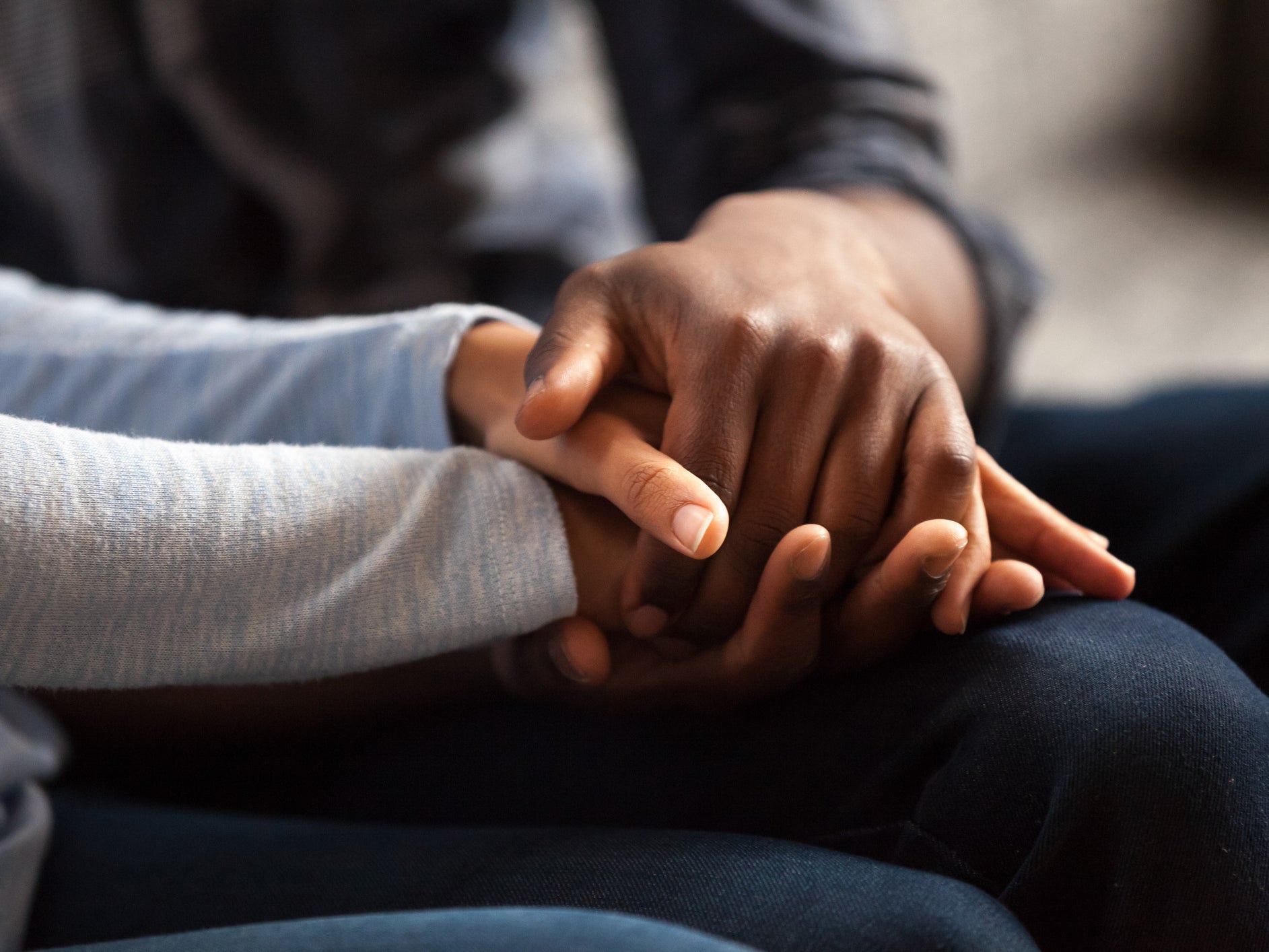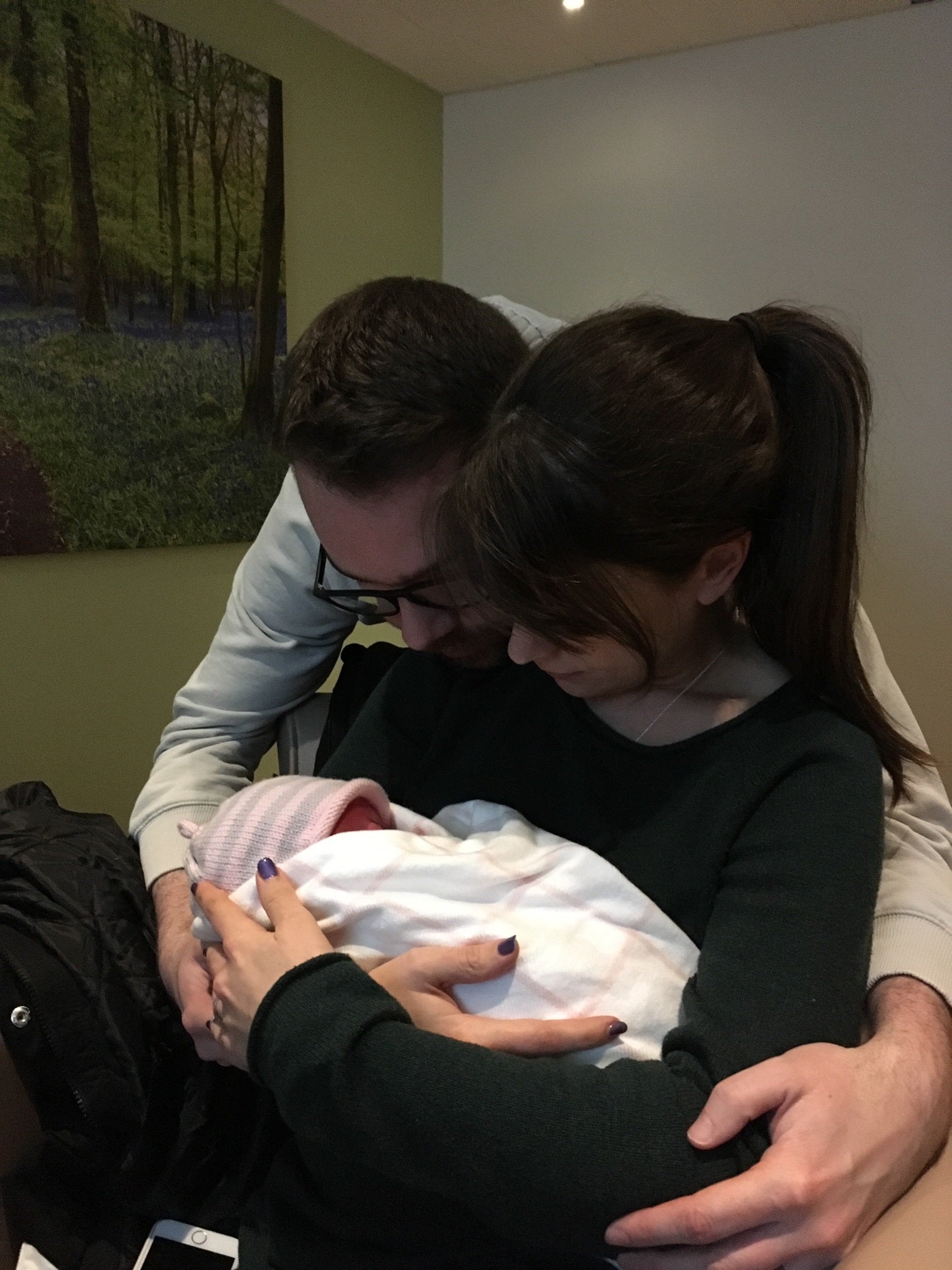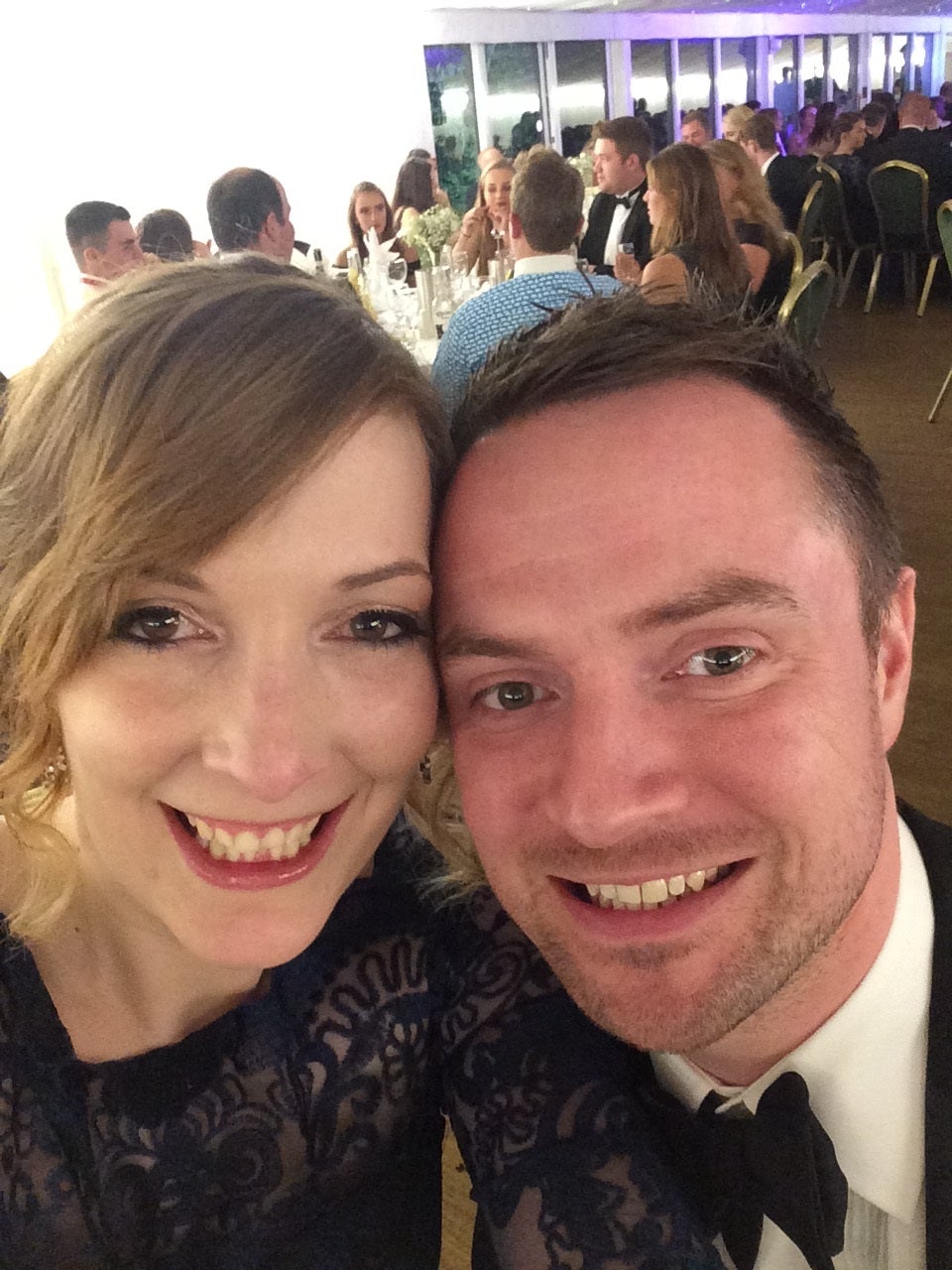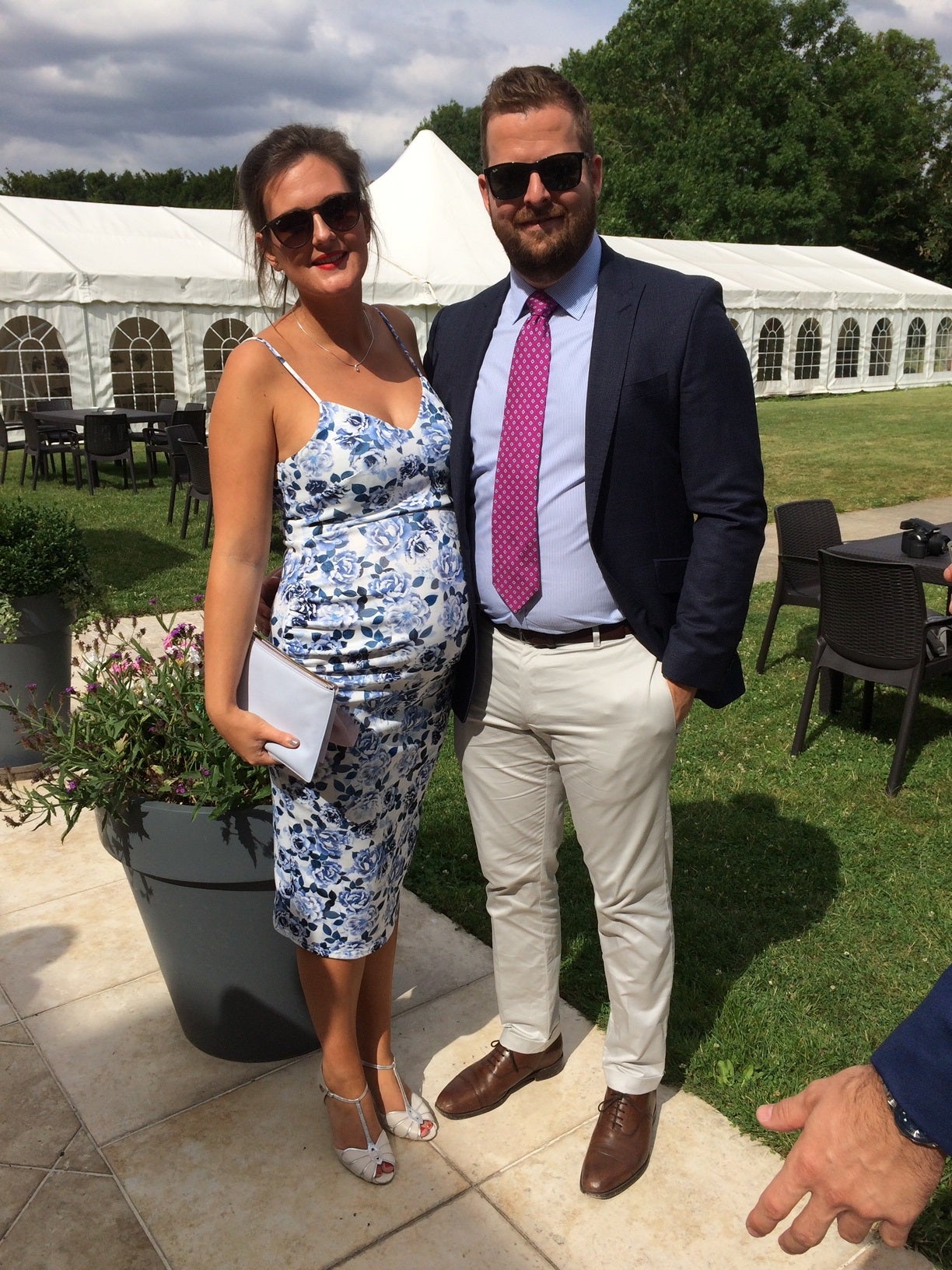‘At least you can get pregnant’: What not to say to someone going through baby loss
‘Saying I’m sorry is the most important thing you can do’


When a loved one has experienced a miscarriage or stillbirth, it can be difficult to know what you can do to show your support in their time of need.
Even if you are unable to directly relate to their distressing experience, it is important to make it clear you are there for them by remaining present in their lives and doing whatever you can to help them process their pain.
On Thursday 1 October, Chrissy Teigen revealed that she had suffered pregnancy loss, stating that she and her husband John Legend are “shocked and in the kind of deep pain you only hear about, the kind of pain we've never felt before”.
Then, a month later, the Duchess of Sussex spoke candidly about her experience of baby loss in a personal essay for the New York Times saying: “I knew, as I clutched my firstborn child, that I was losing my second.”
The Independent spoke to parents and experts from charities about how to speak to someone who has experienced pregnancy or baby loss.
Do: Make an effort to be present
Those who experience pregnancy or baby loss may say it can make them feel extremely isolated from their friends and family, prompting them to pull away from them even when they are in need of their support. Some may take this as an indication that they should also keep their distance. However, saying or doing nothing at all can make grieving parents feel even more alone.
Karen Burgess, CEO of baby loss counselling charity Petals, explains that stillbirth is the “big taboo in this whole area of work”. “I think people literally recoil from it,” Karen says. “So you get these really strong, extreme reactions where people will literally walk away from someone because they can’t bear to hear it.”
In 2017, 37-year-old Alyx Elliott, director of strategy at Petals, experienced the stillbirth of her baby daughter, Skye, at 37 weeks, and suffered an early miscarriage a year later. Alyx, from Cambridge, says she felt “shocked” when some people in her life “just disappeared” following the death of her first child.
“Nothing. Silence. People who were incredibly close to us, just disappeared and still have,” Alyx says. “I’m still lost to understand why, but I’ve learnt since that it’s quite common. And that’s sort of a wound on top of everything else.”

The disappearance of people in her life led Alyx to automatically question whether they thought she was at fault in some way. “When you’re this vulnerable the thoughts automatically go to, ‘It’s me, and it’s because my baby died inside my body and they can’t bear to look at me.’ That was really eye-opening for me and it’s really shaped the relationships I have with people now in my life.”
Do: Just listen
Being there for someone who has experienced a miscarriage, stillbirth or neonatal loss doesn’t have to mean instinctively knowing the right words to say, because there is no one right phrase that is applicable for all. Demonstrating your willingness to listen can relay to grieving parents that you are willing to be there for them and hear about their baby, says Nicola Rash.
Nicola, a 33-year-old lab manager from Suffolk, has experienced two miscarriages. The first, a missed miscarriage, occurred on the same day that Meghan Markle announced her first pregnancy in October 2018, and the second occurred at the end of March 2019. Nicola explains how friends who she wasn’t close to at the time offered her kindness by empathising with her and listening.

“They told me about their own miscarriages, or their own losses, and were just there for me. And that was all I needed really, someone to say, ‘I understand’, and listen. And not to try and minimise it, because a lot of people try to minimise your pain. Just people coming forward to listen to you, and being there,” Nicola says.
Ruth Bender-Atik, national director of the Miscarriage Association, outlines how listening to those in pain can enable friends and family to better understand the support their loved ones need. “The most important thing to do is simply to say something like, ‘I’m sorry to hear your news,’ or, ‘I’m sorry for your loss,’ and then to listen. Because you’ll know from the response in which direction to go,” Ruth states.
Don't: Worry about feeling uncomfortable
Despite the increased awareness of miscarriage in recent years, pregnancy and baby loss are topics that many people still find uncomfortable speaking about openly. This level of discomfort may be the reason that some people draw themselves away from friends or family when they learn of their losses, rather than understanding that just because something is painful, that doesn’t mean it shouldn’t be spoken about.
You can’t get enough talking about your child, whether they’re living or dead
“It’s about stepping into their own discomfort and their own fears about feeling this and being able to put themselves in the shoes of the person who has experienced it,” Karen states. “That will mean going towards rather than pulling away from them.”
One of the comments Alyx received from people who expressed their condolences following the death of her daughter Skye was along the lines of, “I can’t imagine what you’re going through,” a statement she took offence to. “I remember thinking, ‘You can actually, but you just don’t want to because it’s so awful,” she says.
“Of course I don’t want people to know what it’s like, but please at least imagine it for a few seconds, just put yourself in my shoes. It’s the people that did do that and did go there, even if it was just for a few seconds, who said the right things.”
Don't say: "Don't worry you'll have another baby"
Often when a person hears bad news, they may automatically try to find a silver lining in the sadness, a way of making the individual who is in pain feel better. However, parents say that the devastation of losing a baby is not something that can be softened with an optimistic statement.
When paediatric nurse Alice (32) and IT professional Dave Bailey’s (32) daughter Vera was stillborn at 38 weeks in 2016, they received comments such as: “Don’t worry you’ll have another baby”, and “There was probably something wrong with her.” “I remember one person saying, ‘You just need to get back to your normal life and then it’ll all be fixed,” Alice says.

Katie Ingram, whose baby daughter Ottilie Eve Ingram was stillborn at full term in April 2019, outlines how those who are trying to offer grieving parents support “can fall into the easy trap of telling someone how they can or should feel”.
“Our desperation to make someone feel better often results in, ‘You mustn’t think that,' or, ‘Don’t do that to yourself,’ but it isn’t that helpful,” Katie says. “If someone has exposed their raw feelings to you, then listening and understanding is more supportive than trying to correct them. Grief isn’t a rational process.”
Do: Ask questions
If you are unsure how to begin a conversation with someone who has experienced pregnancy or baby loss, then asking them what they would like to tell you about their baby or how they would like them to be referred could make them feel comfortable opening up to you about their child. “You can’t get enough talking about your child, whether they’re living or dead,” Alyx says.
It is important to follow the lead of the parents, Alyx explains, rather than make assumptions about what statements you believe may be comforting.
“I think people really just need to be led by the parents and the language that they use. Because it’s not for everybody,” she states. “Some people who’ve had a miscarriage may not want to refer to it as their baby. Some people will have named their baby, and other people won’t.
“Ask them, ‘How would you like me to talk about your baby?’ I think I’ve maybe been asked that once, and I would have loved it if everybody had asked me that, because then I could have just been like, ‘I’d love it if you said her name.’ Because every time I hear her name it’s like music in my ears.”
Alice adds that people “shouldn’t be afraid” to ask questions about a baby who has passed away.
“Ask them about them. Ask them what they looked like. Ask them how the birth was. Ask them how you came up with the name,” she says. “Just like you would if the baby was ok, you would ask how much they weighed, or what colour their hair was. No one ever asked us that.”
Kate Holmes, support and information manager at The Lullaby Trust, adds that many families “find comfort in saying their child’s name and sharing memories of the time they had together”.
“Talk freely about the special qualities of the child and do not avoid mentioning the subject,” Kate says.
Do: Think carefully about your choice of words
In addition to following the parents’ lead when talking about their baby, it is essential that you are vigilant about the language you use. While certain phrases may seem like they are comforting, they may in fact be the exact opposite.
Every time I hear her name it’s like music in my ears
Nicola says one of the phrases that was voiced to her frequently following her miscarriages was: “Next time just try and relax, and then it won’t happen again.”
“You think well, it’s not my fault,” Nicola says. “I found that one really frustrating, that implied blame that somehow it’s always the mother’s fault. That if you just didn’t stress so much, or if you worked less, then it wouldn’t happen. But of course it still happens.”
For Alyx, the terminology some people have used to refer to her daughter has been a cause of great upset.
“We have to use the terms miscarriage and stillbirth to refer to these things, but I have had a few occasions when people have actually referred to Skye as ‘the stillbirth’, as in ‘the stillborn’, rather than my baby,” she says.
Do: Continue to show support
When a parent experiences pregnancy or baby loss, the mental impact of the trauma can be overlooked if they are seen returning to work or going about their everyday routine as they did before. However, just because they may seem as though they are coping doesn’t mean that they should not still be receiving support from their loved ones.
Following the death of their daughter Vera, Alice and Dave underwent counselling sessions with Petals. Their regular counselling sessions led some to believe that they had “moved on”, as did the subsequent birth of their son.
“When we had our son afterwards, people kind of thought alright now, they’re fixed,” Alice says.
Alyx says that while the majority of people sent her a sympathy card and said nice things to her and her husband Jonny, “that was it for a very long time”.
“We’re thinking about them constantly,” Alyx adds.

If you have been affected by any of the issues raised in this article, you can contact stillbirth and neonatal death charity Sands on 0808 164 3332 or email helpline@sands.org.uk. The helpline is open from 9.30am to 5.30pm Monday to Friday, and until 9.30pm on Tuesday and Thursday evenings.
You can contact the Miscarriage Association helpline on 01924 200799 or email the charity at info@miscarriageassociation.org.uk. The helpline is open from 9am to 4pm Monday to Friday.
You can also find bereavement support at The Lullaby Trust by calling 0808 802 6868 or emailing support@lullabytrust.org.uk.
To contact Petals to enquire about the charity's counselling services, you can call 0300 688 0068 or email counselling@petalscharity.org.
Join our commenting forum
Join thought-provoking conversations, follow other Independent readers and see their replies
Comments
Bookmark popover
Removed from bookmarks